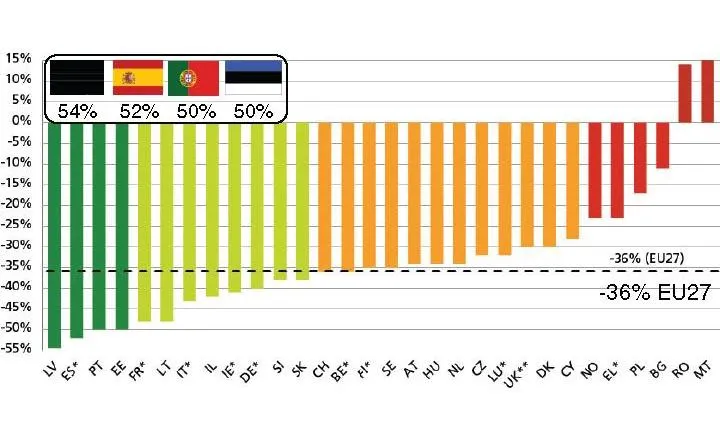Better transport safety is in the best interests of everyone. Accidents, injuries and fatalities take a heavy economic and personal toll.
February 24, 2012
Read time: 2 mins
Better transport safety is in the best interests of everyone. Accidents, injuries and fatalities take a heavy economic and personal toll. Improving road safety standards will help economic development and tackle the heavy burden on society; points on which everyone can agree. However disagreements arise with regard to the best solutions.
The road safety focus in many countries has been targeted at controlling vehicle speed and ensuring that drivers stick to set speed limits. Other nations have looked at improving driver behaviour along wider lines, tackling factors such as driving under the influence of alcohol for example.
The European nations have set a target of halving fatalities caused by road accidents and in countries like Sweden and the UK, which have amongst the lowest level of road accidents in the world, the focus has been on controlling vehicle speed. Meanwhile other European countries such as France and Portugal have targeted driver behaviour in a broader sense and have cracked down heavily on driving under the influence and plain bad driving. The result of these two different approaches has been interesting. Sweden and the UK have made little progress in reducing accident levels while France and Portugal have managed to achieve a dramatic improvement. This could be deceptive as the incidence of driving under the influence of alcohol is likely to be considerably less in Sweden and the UK than in France and Portugal. Both Sweden and the UK have long had tough policies against drink driving and while rules have existed in France and Portugal the authorities have only become tough on enforcement in recent times. Through these much stricter enforcement policies, France and Portugal could have made a major impact on accident levels. Measures to further enforce rules against driving under the influence in Sweden and the UK would have less of an impact, because fewer drivers are likely to be breaking the laws in the first place.
What this makes clear is that there are no easy answers. For any road safety initiative to be truly effective, it is clear that a diverse package of measures is required, and this should include steps to ensure the safety of minority road users such as pedestrians, cyclists and motorcyclists which presently suffer high casualty rates, are not overlooked. Reducing speeding is only one measure and an effective road safety programme should tackle other issues too, including driving under the influence of drink or drugs, tackling cell-phone use at the wheel, vehicle condition and infrastructure design and quality.
The road safety focus in many countries has been targeted at controlling vehicle speed and ensuring that drivers stick to set speed limits. Other nations have looked at improving driver behaviour along wider lines, tackling factors such as driving under the influence of alcohol for example.
The European nations have set a target of halving fatalities caused by road accidents and in countries like Sweden and the UK, which have amongst the lowest level of road accidents in the world, the focus has been on controlling vehicle speed. Meanwhile other European countries such as France and Portugal have targeted driver behaviour in a broader sense and have cracked down heavily on driving under the influence and plain bad driving. The result of these two different approaches has been interesting. Sweden and the UK have made little progress in reducing accident levels while France and Portugal have managed to achieve a dramatic improvement. This could be deceptive as the incidence of driving under the influence of alcohol is likely to be considerably less in Sweden and the UK than in France and Portugal. Both Sweden and the UK have long had tough policies against drink driving and while rules have existed in France and Portugal the authorities have only become tough on enforcement in recent times. Through these much stricter enforcement policies, France and Portugal could have made a major impact on accident levels. Measures to further enforce rules against driving under the influence in Sweden and the UK would have less of an impact, because fewer drivers are likely to be breaking the laws in the first place.
What this makes clear is that there are no easy answers. For any road safety initiative to be truly effective, it is clear that a diverse package of measures is required, and this should include steps to ensure the safety of minority road users such as pedestrians, cyclists and motorcyclists which presently suffer high casualty rates, are not overlooked. Reducing speeding is only one measure and an effective road safety programme should tackle other issues too, including driving under the influence of drink or drugs, tackling cell-phone use at the wheel, vehicle condition and infrastructure design and quality.








